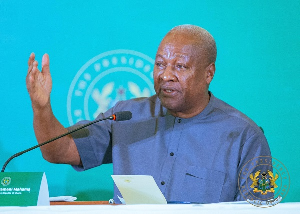The refusal of most men to allow their wives to participate in political activities in the Upper West Region is stifling the government's policy to encourage women to take up political responsibilities. As a result, the Upper West Region branch of the National Council on Women and Development (NCWD) in collaboration with IBIS, a Danish non-governmental organisation, have stepped up educational programmes to encourage women to participate actively in the forthcoming district level elections.
Mrs Kate Bob-Milliar, Regional Co-ordinator of NCWD, said this at Lawra when she addressed a day's workshop on gender sensitisation for 45 women in the Lawra District. She said while some men threatened to divorce their wives if they ventured into politics, others complained they did not want their wives to be in the limelight because of insults and other forms of humiliation.
"Although the government has created an enabling environment for women to improve on their performance in society, petty quarrels, backbiting and gossiping are still restraining a lot of them from active politics." Mrs Bob-Milliar said out of 296 assembly members in the five district assemblies of the region 15 of them were women and only three were elected.
She has, therefore, advised them to eschew inferiority complex in them and aspire to take up higher responsibilities in government "instead of restricting themselves to be secretaries and cleaners in government establishments." Mrs Rosaline Baafulkuo Obeng Ofori, IBIS Co-ordinator on Gender, expressed regret that women could not manage to the top positions in government and other establishments in spite of the fact that they out-numbered men in the recent population census.
She said more workshops would be organised to encourage women to participate actively in local governance, to sensitise selected leaders to be more assertive and to equip participants with advocacy and lobbying skills. Mr Stan Dery, Regional Co-ordinator of Centre for the Development of People (CEDEP), attributed women's failure to make it to the top to lack of confidence adding; "more training courses would be organised to whip up their confidence."
General News of Friday, 24 May 2002
Source: --












